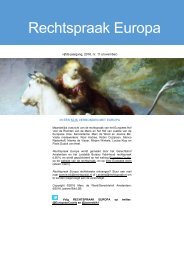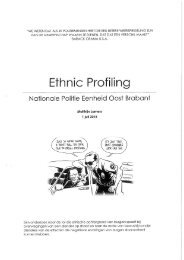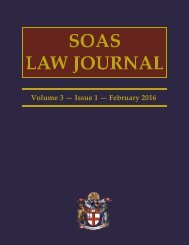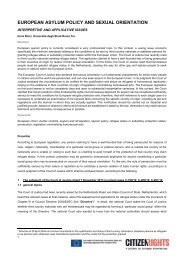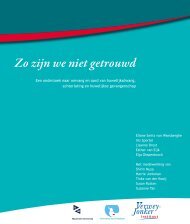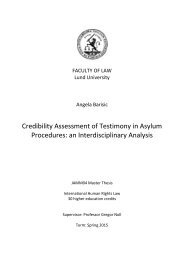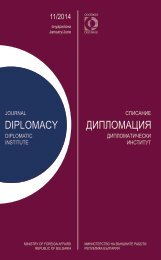AEMI
AEMI-2016-web
AEMI-2016-web
Create successful ePaper yourself
Turn your PDF publications into a flip-book with our unique Google optimized e-Paper software.
Portuguese Language Media in<br />
Luxembourg: The Newspaper Contacto,<br />
a Step Towards Integration<br />
Susana Cascao<br />
This paper briefly summarizes the main<br />
findings of my Master’s thesis, in which<br />
I studied the case of the Portuguese language<br />
newspaper Contacto, a weekly periodical<br />
that traces the complete history<br />
of the Portuguese speaking community<br />
in Luxembourg. Its founding coincided<br />
with the first and biggest wave of Portuguese<br />
migration to Luxembourg in the<br />
1970’s, making it particularly valuable<br />
as a tool for understanding the self-representation<br />
of the Portuguese community<br />
throughout its development. A<br />
thorough qualitative content analysis<br />
was possible thanks to full access to all of<br />
Contacto’s archives since its inception. 1<br />
In order to better understand the Portuguese<br />
language media panorama in<br />
Luxembourg, it is essential to first give<br />
an account of some essential structural<br />
and demographic elements regarding<br />
the Grand Duchy. It is a small country<br />
with a population of 535,000 of which<br />
almost 40 per cent are foreign residents;<br />
of those foreign residents 43 per cent<br />
are Portuguese nationals (92,100). 2 The<br />
country represents a reality with an unusual<br />
proportion of foreigners given its<br />
total population. The immense variety<br />
of nationalities living in the Grand<br />
Duchy (170) and the significant weigh<br />
they might translate into in terms of<br />
votes has been the source of a lively mediatic<br />
debate that has culminated in the<br />
pioneering June 2015, referendum on<br />
extending the right to vote in general<br />
elections to foreign nationals. 3<br />
Portuguese immigration to Luxembourg<br />
has its origins in the late 1960’s<br />
and its flow has been uninterrupted<br />
since. In 1970, a bilateral agreement between<br />
the Portuguese and Luxembourgish<br />
governments kicked off a wave of<br />
migration towards the Grand Duchy,<br />
limited by the quotas established for<br />
workers in the construction sector. Such<br />
quotas were largely overwhelmed by a<br />
determination to immigrate born from<br />
economic push factors, opposition to<br />
the political regime then in place and<br />
the ongoing colonial war. Portuguese<br />
have been emigrating in large numbers<br />
to Luxembourg ever since, although the<br />
beginning of the 2000’s has seen a shift<br />
towards professionals with higher education<br />
working mainly in the financial, IT<br />
and services sector (Berger, 2008).<br />
The media panorama in the Grand<br />
Duchy of Luxembourg includes more<br />
and more ‘ethnic media’, a concept



